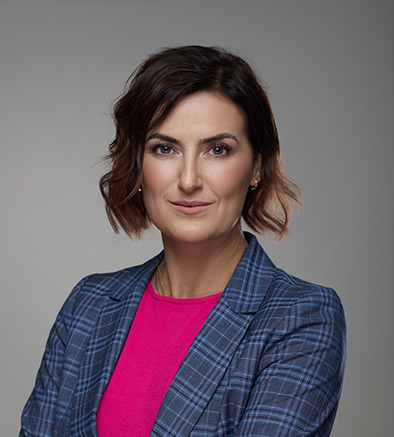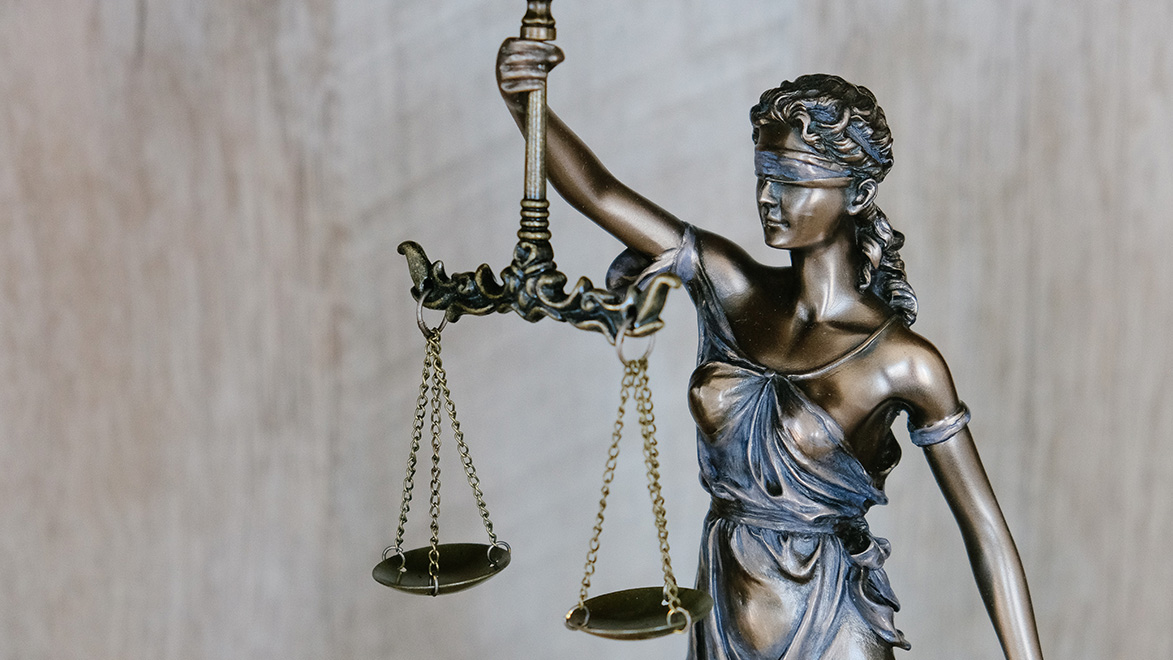Supporting Ukrainian Justice in the Face of War
INTERVIEW Ukraine plans to reform its judicial system as part of its application for EU membership. The Pravo-Justice project had initially been designed to support this approach but was reoriented following the Russian invasion.

With ANNA ADAMSKA-GALLANT,
expert deployed on the Pravo-Justice project
Following the Russian invasion of Ukraine, the EU Pravo-Justice project has been reoriented to address the needs of the judicial system. How do you maintain access to justice in a context of armed conflict?
We first reoriented the project to provide humanitarian aid to our Ukrainian counterparts, also through helping them evacuate to safe locations. Pravo has been recognized by many of external partners as an organization coordinating support for Ukrainian judiciary, which meant that on many occasions we have been serving as a contact point to identify channels for humanitarian aid.
Since the conflict started, war crimes have been committed on Ukrainian territory, resulting in a huge number of cases which the judicial system has to address. This is a challenge and a burden, which Pravo tries to alleviate in various ways. We providing adequate training courses to Ukrainian judges, we also support the Atrocity Crime Advisory Group, a collective of international war crimes experts who work closely with the Prosecutor General.
Last, we are continuing our work on improving court services. Through the Model Court Initiative, we have built a network of courts throughout Ukraine who are implementing good practices to better address the needs of the society.

Following the Russian invasion, the Pravo-Justice project was redirected to respond to the urgent needs of the justice system and displaced persons.
How to ensure the fight against impunity, the collection of evidence and compensation for victims?
Ukrainian prosecution and investigators have to deal with a huge amount of evidence not only because of the scale of atrocities, but also because the war in Ukraine is very well documented. Our project provides Ukrainian authorities with training on how to adjudicate and investigate war crime cases. We contribute to the development of standard operation procedures, or algorithms that can be used in collecting evidence.
We also help Ukrainian partners in strengthening their response towards the needs of vulnerable victims and vulnerable witnesses of war crimes. This is key because they often have relevant information for ongoing investigations. Taking care of their well-being is crucial to ensure that they are able and willing to give testimony, which can be used as evidence in criminal proceedings.
In the same time, ensuring that every defendant, also in war crime cases, has a right to a fair trial guaranteed is the obligation of the state, which shall be implemented by judges, prosecutors and of defence. We help Ukrainian lawyers and judges to strengthen their capacities in this area, also through meeting with their peers from other jurisdictions who can share their experience on that matter.
Since the conflict started, war crimes have been committed on Ukrainian territory, resulting in a huge number of cases which the judicial system has to address.
What is the role of NGOs along with the judiciary, investigation and judgement authorities?
We work closely with the Ukrainian civil society, which is very active, including NGOs: La Strada, the Ukrainian Bar Association (which is the biggest NGO of lawyers in Ukraine and provides assistance to vulnerable groups), the Ukrainian Women Lawyers Association, the Sunflower Project, the Helsinki Foundation. This cooperation is essential because it builds a network of people who are eager to contribute to the development of Ukraine and strengthening the rule of law in this country.
Last July, Ukraine has been granted the status of candidate for the accession to the European Union. How does the Pravo-Justice project help Ukraine on this endeavor?
Pravo was initially working on the report attached to the Ukrainian EU membership application, to support it in the area of the judicial reform. Since Ukraine received the status of candidate, our work has become even more pressing. This is why we are deeply involved in the judicial reform, which is the top condition to be filled by Ukraine on its EU path. Among many of the activities, we have coordinated the operations of the Ethic Council, composed of 3 Ukrainian judges and 3 experts appointed by the international community, which has been playing a crucial role in the process of vetting candidates to the High Council of Justice, which appoints and promotes judges. Additionally, the Pravo project supports the operations of the Selection Commission, whose task is to select candidates for the High Qualification Commission for Judges.
How does the project concretely help the judicial system to align with the “Acquis Communautaire”?
We have arranged a series of meetings with lawyers from other EU member states to help Ukrainian authorities, especially governmental officials, prepare to the implementation of “Acquis Communautaire”. Moreover, we work closely with the National School of Judges and have delivered a series of training courses on EU law. We also organize seminars for Ukrainian judges on that topic, and help them establish working relations with Supreme Courts from other EU member states and the Court of Justice of the EU, so that they understand better the core principles of the EU. It is a long term and challenging process.
Interview conducted in March 2023
See also






